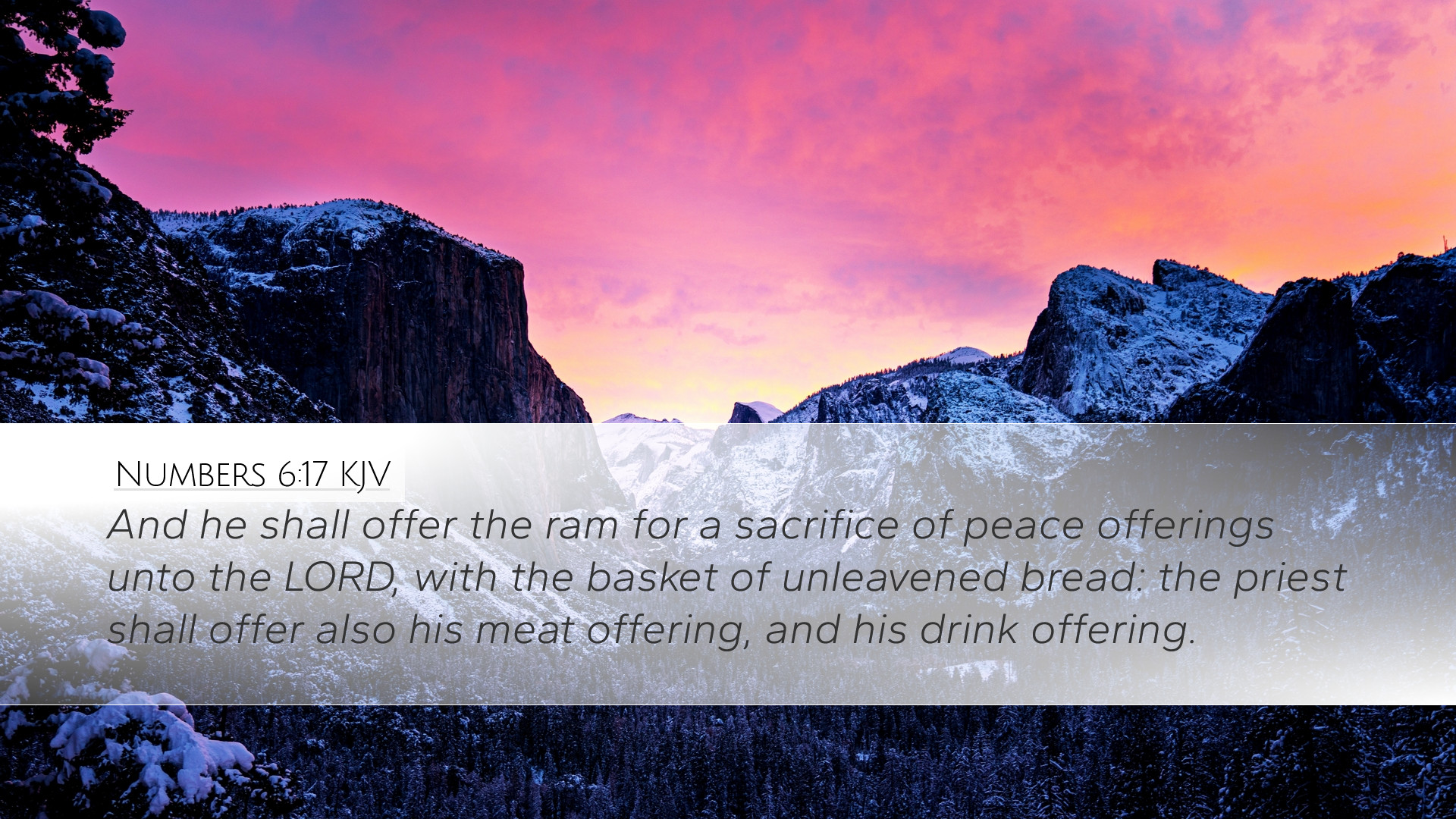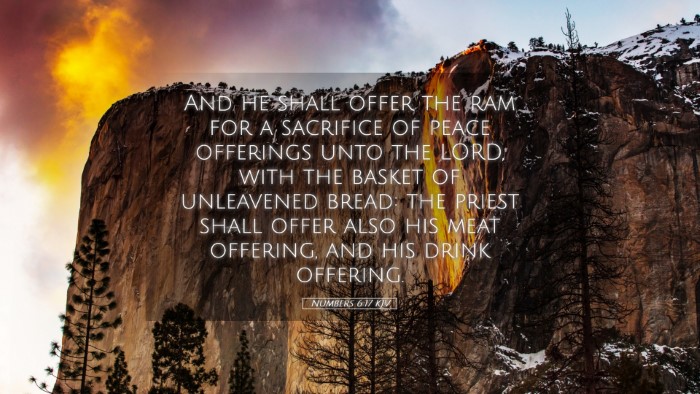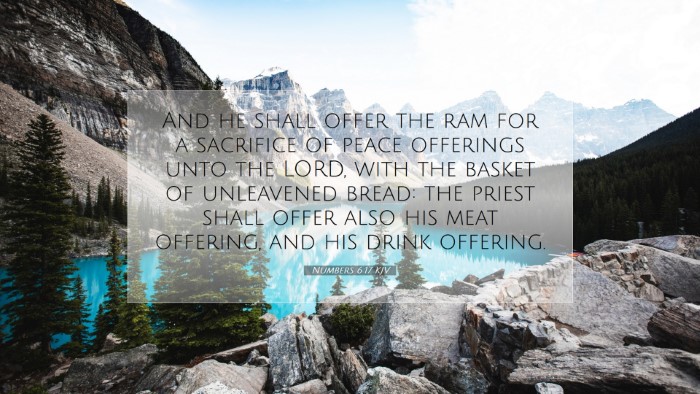Commentary on Numbers 6:17
Verse: "And he shall offer the sacrifice of peace offerings, an offering made by fire unto the Lord, with the basket of unleavened bread; the priest shall offer his meat offering, and his drink offering."
Introduction
The passage found in Numbers 6:17 is part of the Nazirite vow, a unique commitment involving abstention from certain pleasures for a designated period, symbolizing a special dedication to God. This verse discusses the sacrificial elements associated with the completion of this vow.
Matthew Henry's Commentary
Matthew Henry emphasizes that the offerings of the Nazirite are an expression of both gratitude and dedication. He notes that the peace offering represents the worshipper's joyful communion with God, signifying harmony and peace between the individual and their Creator. The specific mention of the basket of unleavened bread highlights purity and the absence of corruption in the offerings made to God.
Henry also elucidates that the act of offering such sacrifices is communal; they are not only a personal affirmation but also serve as a testimony to the community of the Nazirite's commitment. The unity achieved through the offerings between the individual and the divine illustrates a profound theological theme of reconciliation.
Albert Barnes' Commentary
Albert Barnes expands on the ritualistic aspects of the peace offerings. He explains that the offerings made by fire symbolize complete devotion, as fire consumes the sacrifice entirely, indicating a total surrender to God. The fire offerings demonstrate the seriousness of the vow undertaken by the Nazirite, emphasizing that every part of the individual’s life is to be devoted to Yahweh.
Barnes also discusses the significance of the meat offering and drink offering. The meat offering represents sustenance and provision, wherein the offering itself portrays reliance upon God's provisions. The drink offering, typically wine, symbolizes joy and the abundance that comes from a relationship with God. Together, these offerings reflect the multifaceted nature of worship - involving elements of gratitude, acknowledgment of need, and joy.
Adam Clarke's Commentary
Adam Clarke offers meticulous detail on the cultural and historical background of the offerings described. He highlights how the peace offerings were a means of expressing thankfulness to God, often arising from deliverance from danger or the completion of a significant vow, such as that of the Nazirite.
Clarke notes that the requirement of unleavened bread in the accompanying basket serves as a symbol of purity and holiness, reflecting the personal state of the one offering their sacrifices. He also highlights a stark contrast between the leavened and unleavened bread, signifying the eradication of sin and the devotion to live a holy life before God.
Theological Implications
- Significance of Sacrifice: This passage underscores that the act of worship involves physical representations of one's devotion. It is essential for both personal growth and community unity.
- Communal and Personal Worship: The peace offerings serve as a bridge between personal commitment and communal testimony, illustrating the communal aspect of faith.
- Purity in Offerings: The reference to unleavened bread calls attention to the need for purity and the rejection of sin in the life of a believer.
Application for Contemporary Believers
For pastors, students, and scholars, Numbers 6:17 presents rich opportunities for exploration in both its historical context and its modern applications. The nature of sacrifice and dedication found in this passage serves as a reminder of the seriousness of spiritual commitments. As believers today engage in their own vows and dedications, they can draw parallels to the ancient practices outlined here, understanding the enduring nature of offering oneself wholly to God.
Moreover, the focus on community is particularly relevant in today's fragmented society; the offerings made by individuals can serve as a means to foster community bonds, reflecting shared faith journeys and communal worship experiences.
Conclusion
Numbers 6:17 represents a culmination of personal sacrifice, community engagement, and divine communion. Commentaries from Matthew Henry, Albert Barnes, and Adam Clarke together enrich our understanding of this verse, reminding us of the importance of purity, the seriousness of vows, and the joy of our relationship with God through sacrificial offerings. As modern-day believers, there is a profound lesson in worshiping God through the lens of commitment, acknowledging both our need for Him and the joy that comes from a life fully dedicated to His service.


